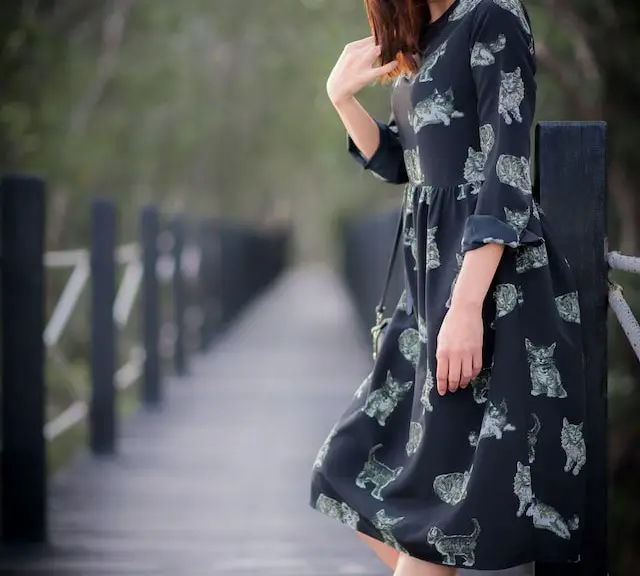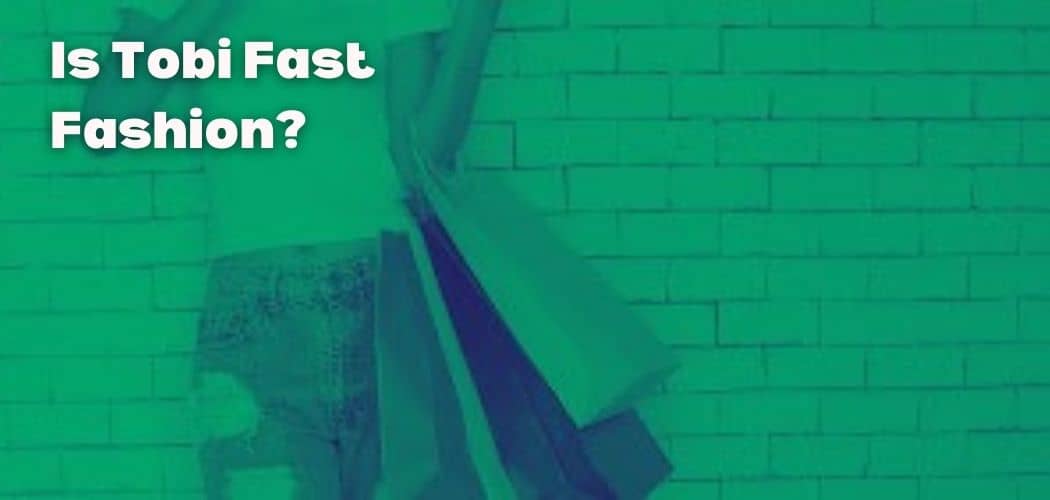Tobi is a fast-fashion retailer brand. The brand sells women’s clothes, apparel, and accessories.
Tobi delivers in more than 150 countries and is available on eCommerce websites like Amazon, Walmart, eBay, etc.
It is an online company having physical stores in the USA only and sells millions of garments annually.
The demand for Tobi products is undoubtedly high, to meet this demand products are manufactured in extensive quantities.
Therefore the brand lies in the fast fashion category because the products are manufactured on a mass level in the factories.
Besides this, brand officials also have referred to this brand as a fast-fashion brand. On the landing page of the official website of Tobi, the statement is as follows
”TOBI IS AN ONLINE FAST-FASHION RETAILER. WE DESIGN, PRODUCE, AND SELL OUR PRODUCTS GLOBALLY AND EXCLUSIVELY ON TOBI.COM”
Is Tobi responsible for mass production?
Yes, Tobi is responsible for mass production. Tobi sells millions of products around every corner of the world, achieving this landmark without manufacturing products in bulk seems unrealistic.
Modern technology has empowered factories with the latest machinery, which is capable of manufacturing hundreds of thousands of products in one go.

From the business point of view, mass production is time-saving and progressive but from an environmental safety aspect, it is nothing but hazardous and destructive.
Mass production causes the emission of carbon dioxide and multiple other toxic gases in large quantities into the atmosphere.
Whereas emission of carbon dioxide is one of the primary reasons behind environmental pollution and global warming to some extent.
However mass production is polluting our environment but all the big brands like Tobi and others fearlessly endorse this practice just to earn quick profits.
How is Mass production bad for the environment?
As far as mass production is concerned it is not always bad for the environment but in the case of clothing and garments, it is always bad.
The production of clothes and garments on a mass level is one of the primary reasons our environment is polluted.
The materials used in the manufacture of clothes are harmful, they emit toxic gases as by-products which mix with air and make the air polluted.
Not only the air but water and soil are also being polluted by the mass production of clothes and garments.
Textile dyes used to color the clothes are one of the major pollutants in the water. Whereas fertilizers and pesticides are used to increase soil fertility, which weakens the quality of soil and makes it polluted.
What materials are used to manufacture clothes and garments?
The materials generally used in the manufacturer of clothes and other garments are synthetic fabrics.
Synthetic fabrics like Polyester, nylon, propylene etc are commonly used for clothes production and synthetic fabrics are obtained from fossils like crude oil and petroleum.
That is why when synthetic fabrics are processed, release toxic gases as by-products similar to most fossils when used as fuel.

Other materials are also used in the production of fashion apparel and garments which are cotton thread, wool, leather, and bast fibers.
Cotton thread and wool were the most common materials used in clothes production before the industrial revolution hit the world.
From where does Tobi get its clothes?
Developing countries like African and Asian countries are home to the factories of these international brands.
Countries like China, India, Bangladesh, Pakistan, etc where labor is very cheap and environmental laws are for name are manufacturing hubs of such international brands like Tobi.
Tobi has started its manufacturing plants mostly in China and India where clothes are produced on a mass level and then sent to the USA at Tobi`s headquarters from where clothes are shipped all around the world.
However, Tobi gets its clothes from China and India and then sells them to the world at very high prices. whereas the production cost is just minimal.
Is Tobi ethical?
Mainly not, a brand involved in mass production that causes environmental pollution due to which animals and humans both suffer, how can it be ethical?
Tobi has dozens of factories worldwide that manufacture millions of clothes and garments,
as a result of this production toxic gases enter the atmosphere, and poisonous liquid and solid waste enter the sea and water bodies.

Besides causing environmental pollution, Tobi is also responsible for the exploitation of humans, mainly the workers of factories.
These workers are hired at meager wages and forced to work beyond their limits which is clear exploitation.
Therefore a brand like Tobi can never be ethical.
What are the consequences of Fast Fashion?
The consequences of fast fashion are offensive, drastic, and destructive.
Due to air pollution caused by the clothing industry the ratio of carbon dioxide and other toxic gases like methane is increased by a great number.
Liquid and solid wastes of the clothing industry are drained into water bodies due to which 70% of the water is already contaminated by the waste coming from the clothing industry.
Not only the environment but humans are also being exploited by this industry. Poor labor is hired at meager wages, more than 90% of the labor is females.
The fast fashion and clothing industry has also promoted child labor to a great extent which is an open violation of human rights.
However the consequences of fast fashion are patty, it needs to be stopped otherwise consequences will be even more drastic.
What are some better alternatives to Tobi?
Tobi being an unethical brand is a contributor to environmental pollution and global warming but it doesn’t mean that every brand is unethical and exploitative.

There are still few brands left that are ethical and care for the environment which are being listed below
List of probably ethical brands
